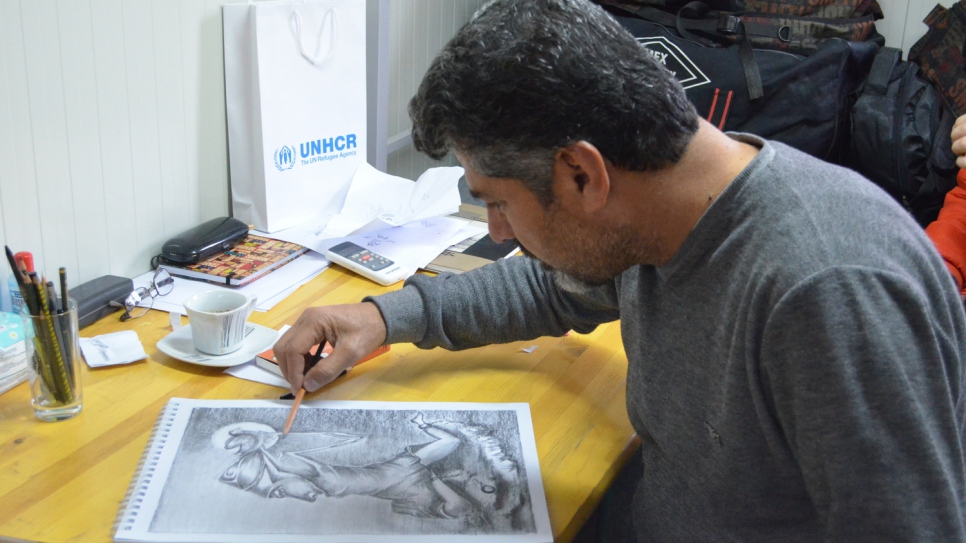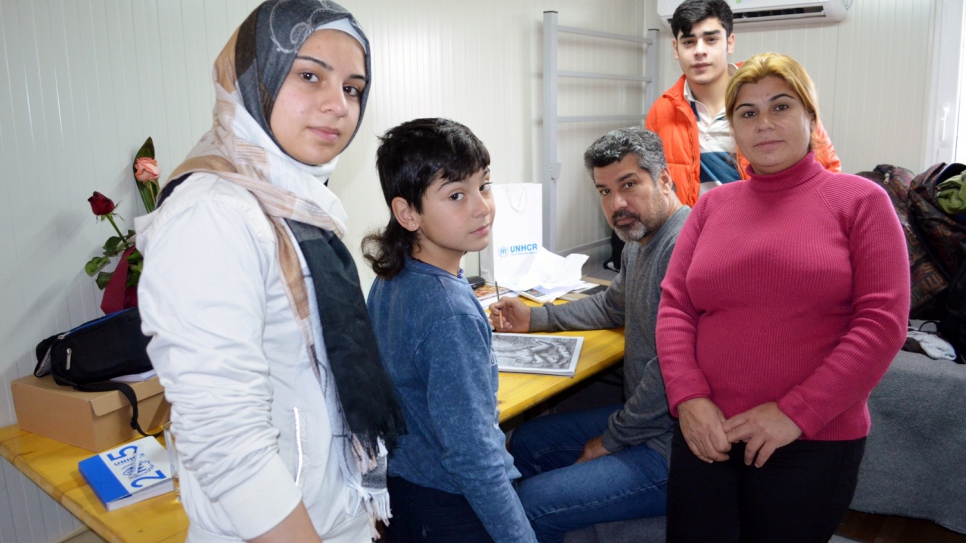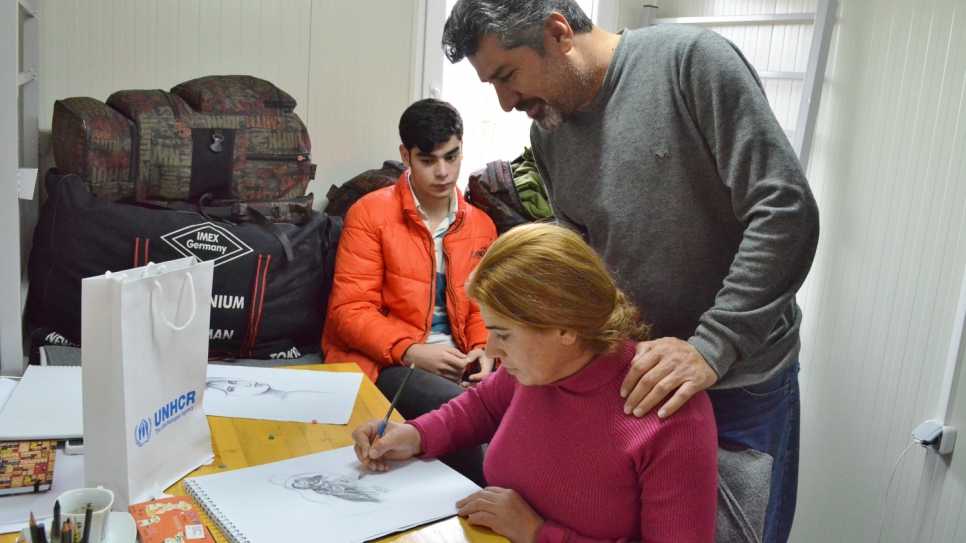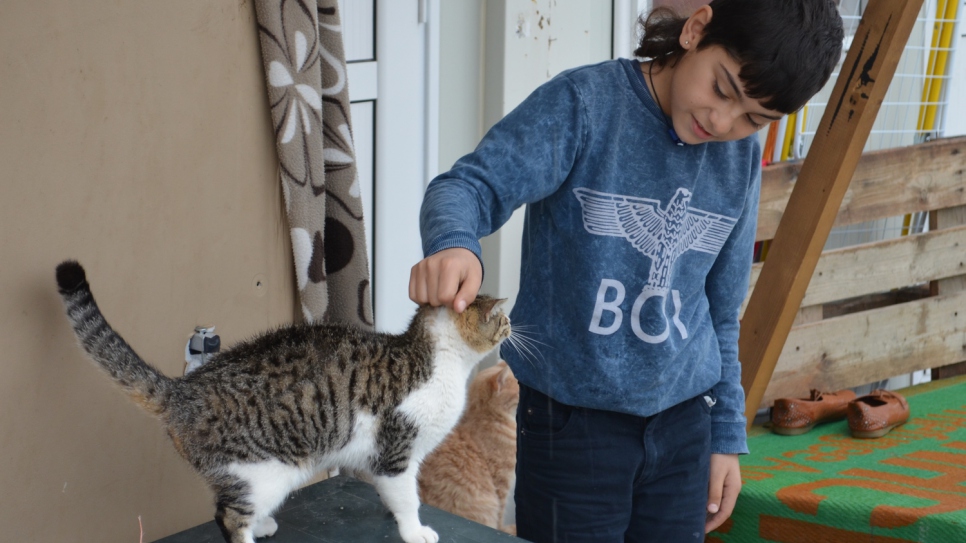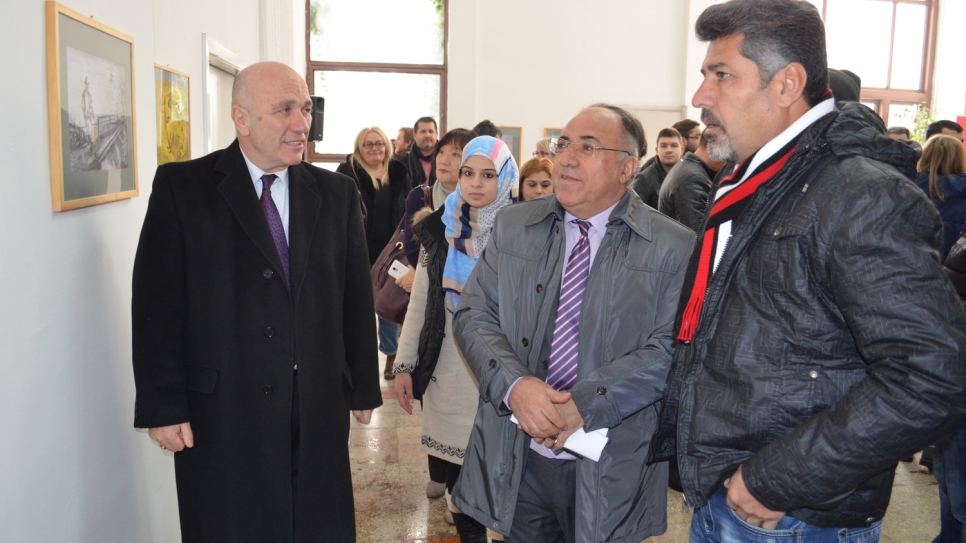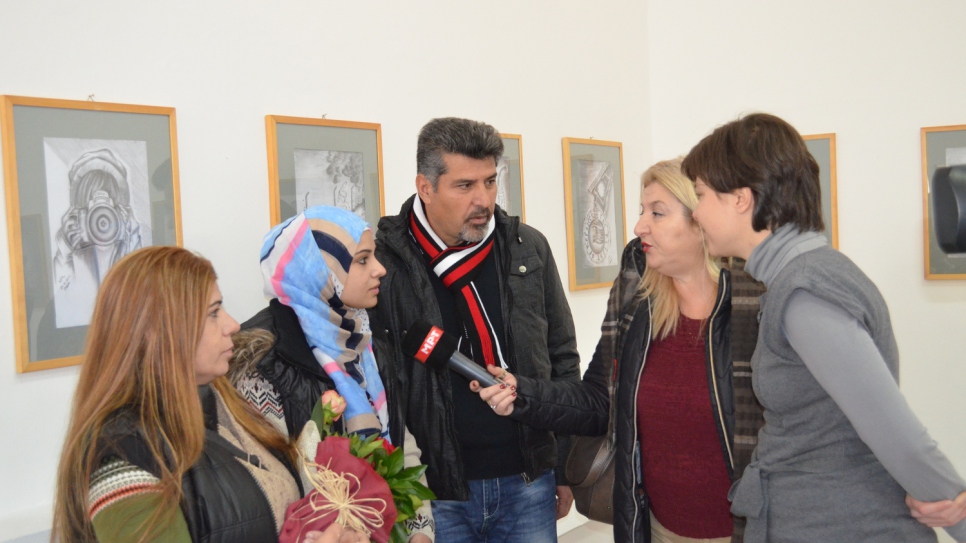Syrian refugee couple find new hope and freedom through art
An exhibition of drawings by artists Shergo Musa and Nazli Abdou in Skopje portrays the experiences, hopes and fears of their family and fellow refugees.
SKOPJE, The former Yugoslav Republic of Macedonia – Syrian refugee couple Shergo Musa and Nazli Abdou each discovered a love of drawing when they were children. Now, after living for months in temporary accommodation in the former Yugoslav Republic of Macedonia, they have been given an opportunity to tell their story through their art.
Last month, UNHCR, the UN Refugee Agency, helped organize the first exhibition of the artists’ work in the country’s capital, Skopje.
Shergo, 49, and Nazli, 43, fled the besieged city of Aleppo in 2015 with three of their five children. Two older siblings are grown up – a married daughter lives in the north-eastern Syrian city of Qamishli and a son moved to Austria a year ago.
The professionally curated exhibition in the national cinemathèque in Skopje, entitled “Escape to a Better Tomorrow”, was organized by UNHCR staff jointly with the country’s Crisis Management Centre. Its goal was to send out a message about the need for refugees to continue with their lives and to help them reach a wider audience for their story.
The pencil drawings depict the refugees’ experiences, hopes and fears. For the artists and their children – daughter Avin, 20, and sons Faris, 18, and Lavent, 10 – the opening ceremony on 12 January provided a rare opportunity to leave the transit centre where they spend their days.
“Once refugees survive war and they are somewhere safe, they must not continue to survive, but live a full life.”
The refugees in the centre do not enjoy full freedom of movement, which places additional psychological pressure on them.
The UNHCR representative in Skopje, Mohammad Arif, said the idea of the exhibition was to present just a fraction of the skills that refugees bring to their host countries.
“Apart from the basic humanitarian assistance and shelter, refugees crave the possibility to create, to develop, to live fully – and countries need to make all the efforts to enable that,” he said.
“Once refugees survive war and they are somewhere safe, they must not continue to survive, but live a full life.”
In Syria, Shergo worked in a textile factory drawing patterns for clothes, while Nazli looked after their home.
Fearing for their lives if they stayed in Aleppo, the family reached the former Yugoslav Republic of Macedonia via Turkey and Greece, where they have spent almost a year in the Vinojug Reception and Transit Centre, near the Greek border.
In March 2016, the borders of the countries in the Balkans were closed to refugees and migrants, stranding several thousand along the route in conditions suitable for short term stay only. Of them, more than 130 are still accommodated in two transit centres in former Yugoslav Republic of Macedonia that are unfit for long-term stay.
Interviewed a week after the opening, Shergo told UNHCR: “If I should choose one word to explain what the most difficult thing for me is now, I would say our limited freedom.”
“One word to explain what the most difficult thing for me is now… I would say our limited freedom.”
Nazli added: “Our children are aware of the situation and understand it, so despite all the difficulties, we are succeeding in maintaining the harmony in our family.”
The couple said their greatest wish since they left Syria was that their children should be able to continue their education and live a normal life.
Speaking about their drawings, Shergo said: “During the past period, we have gone through a lot of suffering, losses and pain. All of it is represented in these drawings – since we left home, then situations from the trip, up to our arrival here.
“I am happy that we have an opportunity to share all that suffering with the public, to whom we are very grateful for their understanding and compassion."


